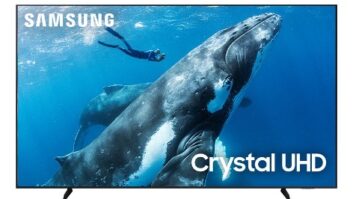NEW YORK – Amazon will likely bring a new business model to the cellphone industry if it enters the smartphone market later this year, but the business model faces multiple challenges even though Amazon has used it successfully to build its e-reader and tablet market share, analysts said.
If its replicates its tablet and e-reader strategy, Amazon will sell its smartphone at cost or at a very low profit to drive sales of content and services, analysts said. The phone might also run an Amazon-specific version of the Android OS that Google will block from accessing all of the apps in the Google Play store. Amazon’s phone, in turn, could be limited to accessing the far smaller selection of apps available in Amazon’s own download store.
Some analysts believe that to be successful, an Amazon smartphone will either have to access the Google Play store or a vastly expanded library in Amazon’s app store.
Some analysts also point out that carriers might put roadblocks in Amazon’s path. That’s because users of Amazon’s device have their relationship with Amazon, and carriers might be unwilling to cede the subscriber relationship. If that’s the case, Amazon could be forced to become an MVNO that buys wireless service on a wholesale basis for resale, and if it becomes an MVNO, Amazon might not be able to offer its phone in variations that could be activated on multiple carriers’ networks.
Even with its marketing clout and potential low-price handset, Amazon will succeed only with the right hardware design differentiated functionality such as four front-facing cameras that the phone will reportedly have to track eye movement and deliver new capabilities, some analysts said.
“A business model that looks to drive profit from selling content and services over a smartphone sold at cost has not really been tried, but Amazon could have the scale, services and brand clout to be successful,” said David McQueen, principal analyst at Informa Telecoms & Media. The phone would have a large screen size like a phablet “if [Amazon] is to go down the service route to create the best possible user experience,” he added.
One potential roadblock, McQueen said, is Amazon’s desire to control the customer relationship. “At present, users of Amazon devices have their relationship with Amazon … but this may be more difficult to achieve with a smartphone owing to a number of issues, such as mobile operator unwillingness to cede the subscriber relationship, building out prepaid and postpaid services, and how roaming will be treated.” It is possible, however, that Amazon might consider launching as an MVNO, he said.
To succeed, McQueen continued, any smartphone maker, including Amazon, has to create its own ecosystem or find other ways of differentiating. Hardware differentiation “is getting more and more difficult,” he said, but creating a “spin-off” ecosystem, similar to what Amazon did through its own UI and own online services, is another way to differentiate. Nonetheless, “while Amazon has improved its range of content through the purchase of Lovefilm, if it is to stick with creating its own differentiated offering built on Android, then it will need to make sure it carries all the top applications, such as Facebook, Twitter, etc. as well as create partnerships for mapping and location services,” he said.
Frost & Sullivan senior analyst Todd Day pointed out that whatever the content strategy, Amazon’s smartphone success will hinge largely on factors that drive other smartphones to success, including a sleek design, ease of use, differentiated functions and capabilities, and a trove of apps. “The key for Amazon here is to ensure that the full application selection from the Google Play Store is available, not just apps from the Amazon app store,” he said.
Day expects the launch to have a “minuscule” impact on Apple and Samsung sales, at least initially. “However, based on the overall success of the Amazon ecosystem and new suite of products, there could be a longterm effect for all three companies.”
A partnership between Amazon and Samsung, he added, “would no doubt provide a huge problem for Apple.” Samsung is the top smartphone/mobile device manufacturer in the world “by far,” he said, and Samsung has a huge market share in TVs and other home electronics. “Amazon, on the other hand, has a significant product portfolio on the content/cloud side of the space. Both companies have significant leverage on the market to offer [to] the other,” he concluded.
Another technology analyst, Jeff Kagan, said an Amazon smartphone “could be another Kindle-like business,” but he noted that the wireless industry “has a history of rewarding only some companies.” He pointed to the failed Facebook-optimized phone launched early last year by Facebook and HTC.”
He added, “Some companies like Apple, Google and Samsung are very successful in the smartphone space,” he said. “However many more companies are trying with very little success. The next biggest player is Microsoft Nokia, and they only have a few percent market share.”
TAKEAWAY
Amazon could upset the cellphone market’s apple cart if it sells its smartphones at close to cost, but it won’t be too easy.













